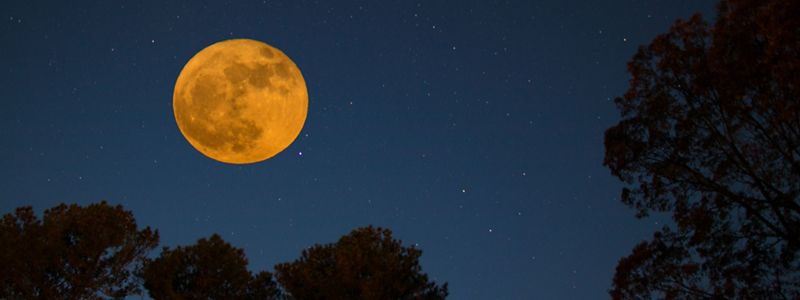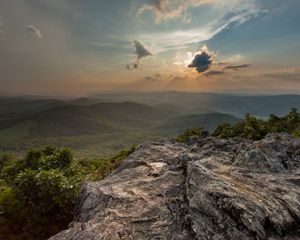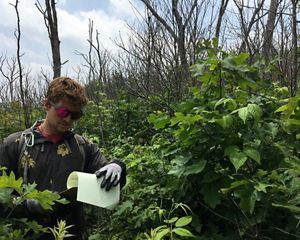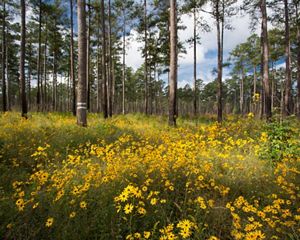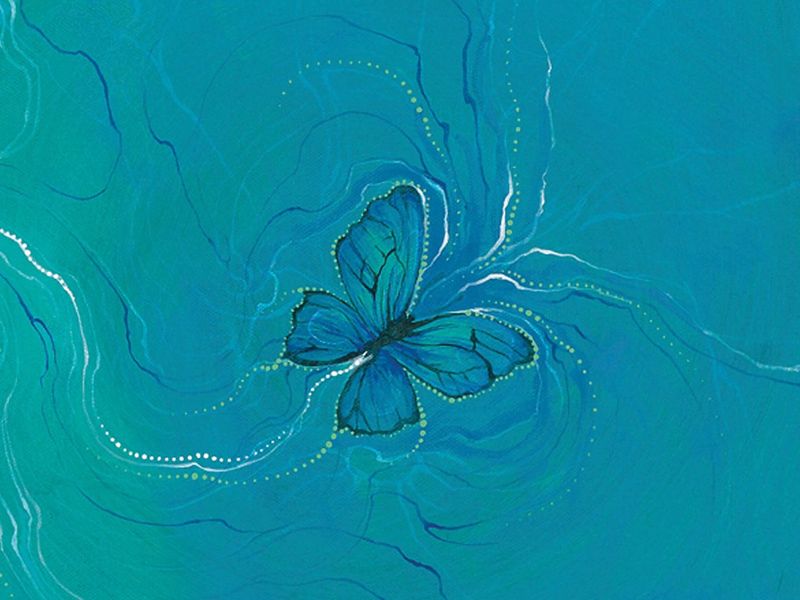
Writing the Land This inspiring anthology is a collection of poetry about conserved lands held by a land conservation organization or Tribes across the Commonwealth of Virginia. © Butterfly Effect by Martin Bridge
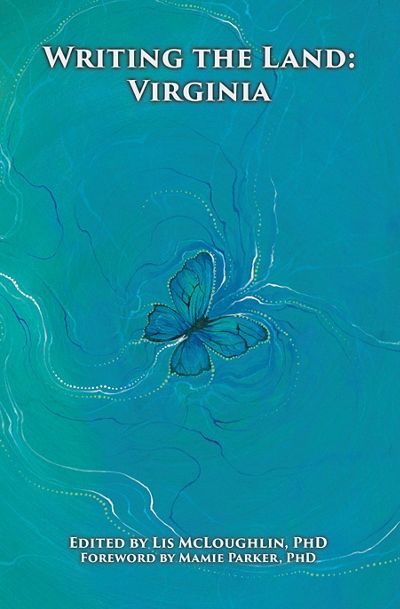
Between 2023-2024, our Virginia team collaborated with six poets, each of whom “adopted” a TNC preserve or project in the state to visit periodically for literary inspiration. The poems they created from these experiences in nature have been published in an anthology, Writing the Land: Virginia, which also includes poetry from 11 similar collaborations across the state and a foreword by TNC trustee Dr. Mamie Parker. The poets who worked with TNC are Doug Van Gundy (Warm Springs Mountain Preserve), J. Indigo Eriksen (Piney Grove Preserve), former Virginia Poet Laureate Luisa A. Igloria and Chelsea Krieg (Volgenau Virginia Coast Reserve), Tramere Monroe (Clinch Valley) and Jonathan Cannon (Buck Mountain Creek Conservation Easement, his family farm). TNC was also instrumental in conserving several other featured lands in the book, such as Northern Virginia’s Bull Run Mountains and the Crow’s Nest Natural Area Preserve. Learn more about Writing the Land and how to order the anthology at writingtheland.org.
Warm Springs Mountain Preserve
Allegheny Highlands, Bath County, Western Virginia
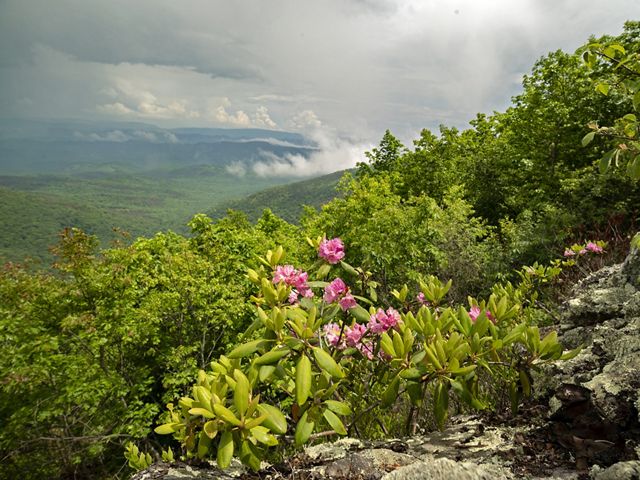

Doug Van Gundy is a writer and poet from Elkins, West Virginia. He directs the Low-Residency MFA program in Creative Writing at West Virginia Wesleyan College. His work has appeared in many journals, including Poets & Writers, Poetry and The Oxford American. He is co-editor of the anthology Eyes Glowing at the Edge of the Woods: Contemporary Writing from West Virginia, published by West Virginia University Press. His first book of poems, A Life Above Water, was published by Red Hen Press, and his second collection is forthcoming from The University Press of Kentucky. Doug also plays fiddle, guitar and mandolin in the old-time music duo Born Old.

Waiting is a Shade of Green
by Doug Van Gundy
If these hills are still green, then green
must be the most patient hue: Zen
green. Waiting green. Indecisive green.
Been there, still there, green. Trees
seem dabbed along Warm Springs Mountain
and down the slope in shades of olive
and viridian, emerald; sap and cadmium green,
waiting to oxidize brown or be scraped
from the canvas of the Alleghenies
leaving only grey ghosts and damaged
ground. Orange is action and blue
is placid and red is pure passion
but green is take-it-as-it-comes, whatever-
works-for-you, very laissez faire,
awaiting the rising tide of autumn
and whatever it is that comes next.
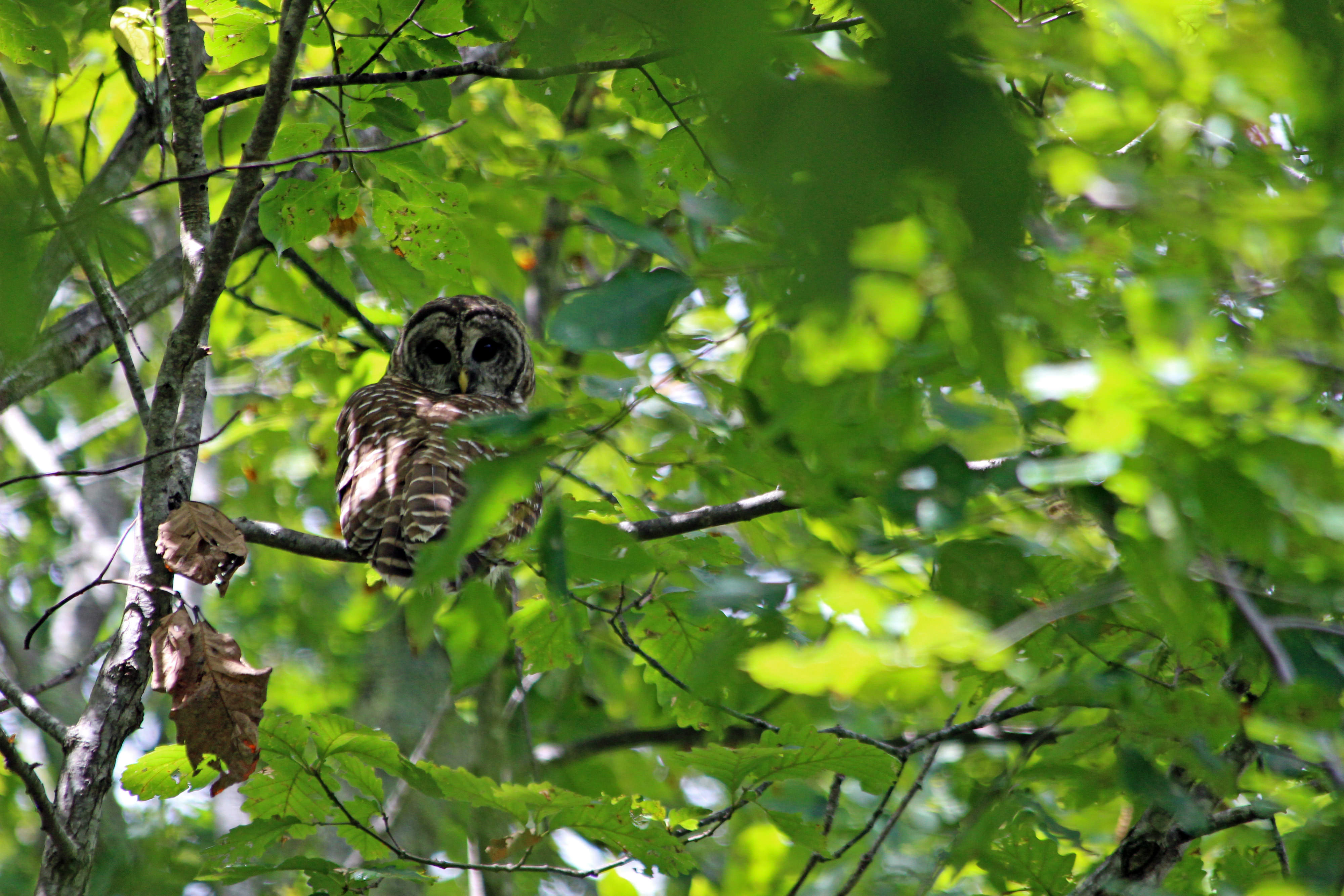
News from Bath County
—After Michael O’Brien
by Doug Van Gundy
Cumulus clouds echo
the contours of hills below
while mist rises
from the ridgeline
like a waterfall
in reverse.
___________
In the valley
Mill Run stumbles
tripping over
its own feet and catching
itself over
and over again.
____________
All there ever is
is a little of this, a little
of that — honey mushrooms
at the base of the oak,
an inchworm measuring
a yellow leaf.
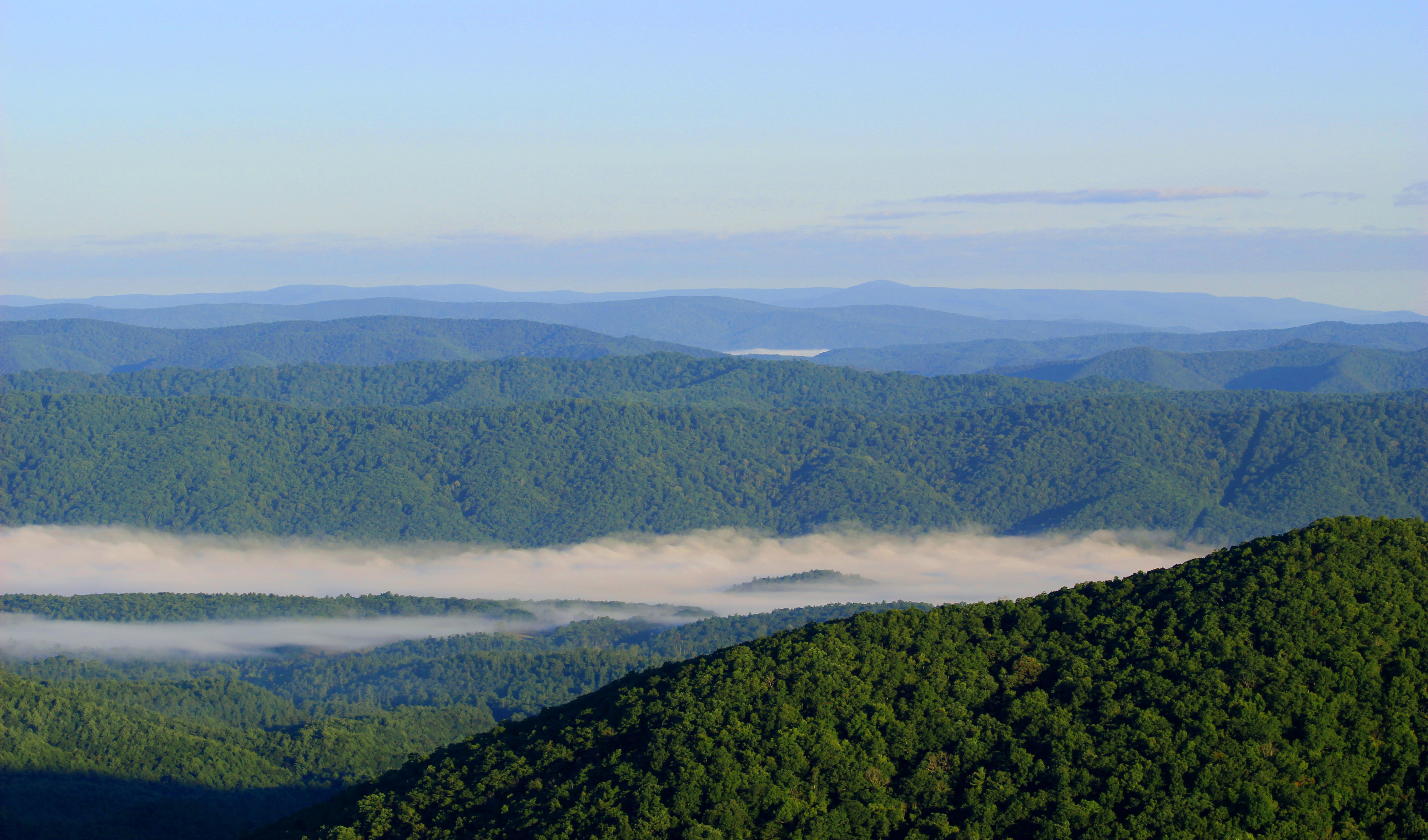
Warm Springs Mountain, August
by Doug Van Gundy
I look east on a clear day from Flag Rock
across the valley-and-ridge — out over
Big Piney and Beards Mountain,
through Panther Gap to Little North
in the blue distance, toward the coastal plain
and the Chesapeake, and I’m taken by a romantic
and wrong-headed vision, imagining the masts
of ships well beyond the horizon, their pilots
and passengers yet to set foot on this land
they believe is unknown and unnamed.
Likewise, looking west, out over the Warm Springs
Valley toward the plateau, across the Jackson River
to Back Creek Mountain and Allegheny beyond that,
and beyond even that, the accordion of ridges
that stretch to the Ohio, I can almost see ghosts
of smoke rising against the late-summer haze
from the stick-and-mud chimneys of cabins
built by Scots and German and English settlers.
I even imagine looking straight down at my feet
through the accumulated strata of earth and time,
deposit and upheaval, continental drift and
Appalachian orogeny, eventually arriving
at the bottom of a Cambrian sea, its mollusks
and sea fans buried beneath millions of years
of quartz and shale and sand.
Dreaming like this in the here-and-now,
I almost overlook the mushrooms and mosses
turning last year’s leaves and limbs to soil,
and the oaks and hickories turning the morning sunlight
into leaves and acorns, and down the ridge, high up
in the canopy, a pileated woodpecker drumming
as he excavates the dead trunk of a decades-old
chestnut tree, hollowing out a home.
Quote: Doug Van Gundy
My Warm Springs Mountain poem looks down through the layers of Earth and time and then basically says that looking at that is a fallacy because you miss the things that are right in front of you.
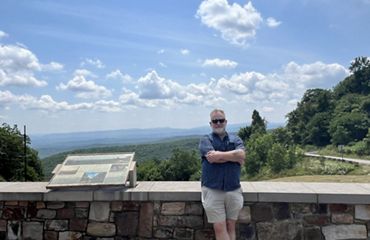
Explore TNC's Allegheny Highlands Program
Collaborating with partners to protect forests, caves, rivers and unique habitats.
Learn morePiney Grove Preserve
Virginia Pinelands, Sussex County, Southeast Virginia
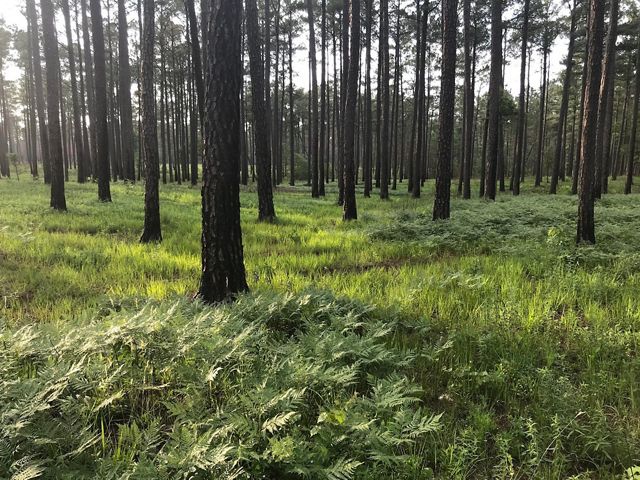
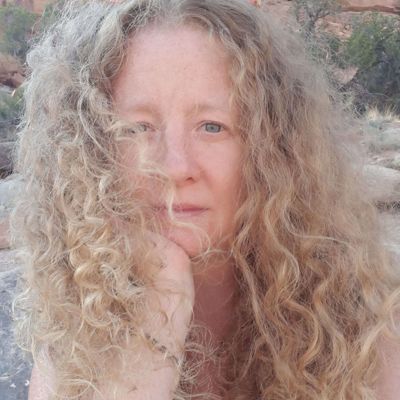
J. Indigo Eriksen was raised in Virginia and Colorado, lived in Guatemala and Mexico, and received her MFA from Mills College and MA in Comparative Literature from San Francisco State University. A resident of Front Royal, she is Associate Professor of English at Northern Virginia Community College and a doctoral candidate at George Mason University. Her creative work has appeared in Texas Review Press, District Fray, The Northern Virginia Review, Scratching Against the Fabric, Endlessly Rocking, and TYCA-SE Journal.
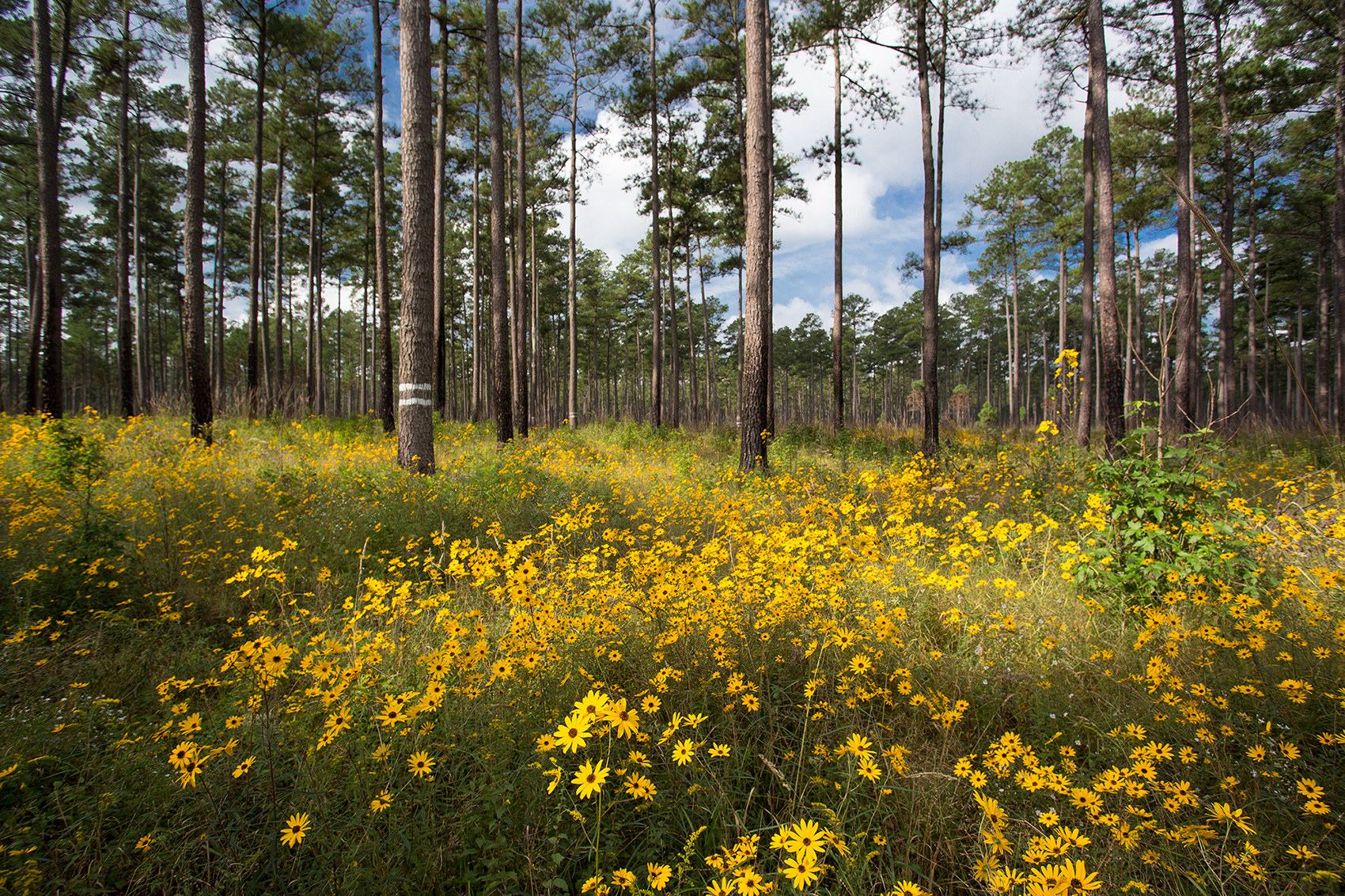
Two Lines
by J. Indigo Eriksen
I would tell you of the two lines
wrapped around a pine tree that announce
the red-cockaded woodpecker; and how
the fire-browned leaves of the understory
mean light and breath; I would show you
that these locked gates transform into the long
lives of forest.
I would tell you of a cypress swamp in the ancestral
lands of the Nottoway. Of moonlight filtering through
pine. Of a hidden flower, only two of which exist now. Of
enslaved bodies buried without namestone. Of the old war
and the new one coming.
I would tell you the gps coordinates, the passcode for entry,
the hidden key. If only you didn’t demand this as
your birthright. If only you wouldn’t carve your name
into the bark. If only you could break open your marrow
and let loose your wild spirit. If only you were still. If
only you might hold the call of the bird above you
in palms gentle, and bend.
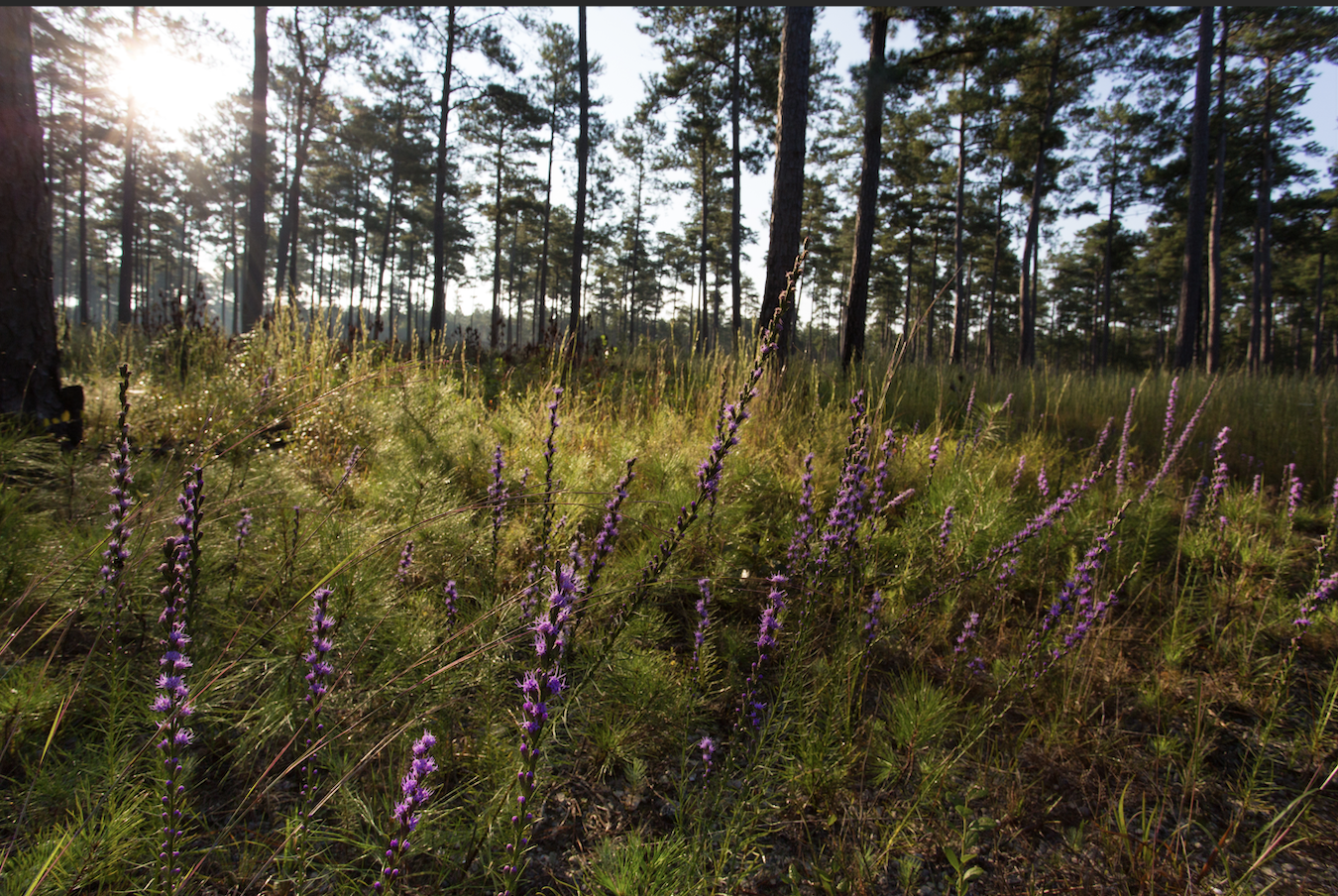
I arrive thirteen days after a new attack in an old war. This is the day a woman is stabbed to death in your country for reasons unrelated to the old war, the authorities tell you in a press conference. In the old war, a thousand children are murdered will be murdered are dying now. The streets become impromptu burial ground for men and women and olive grove, leftovers given to the air-raid siren night. In this country, you go to the trees. You carry the dead with you. Here, there is so much space for the old wars, all of them, that unfold around you like confetti of bone ash and crumbled buildings; your eyes a teleprompter naming the dead. Still, the sacred persists. In cypress swamp, in the Nottoway, in the land returned to those before. In this country, there once were wild places, too. This was before the old wars, when there were no boundary lines to fight for. The earth an extended spaciousness. Here, though, the trees are tall and arranged in rows. Safety delineated on maps. Here, the dead of an old war lie quiet. The forest a hidden grave for stolen bodies. Still, the sacred persists. In cypress swamp, in the Nottoway, in the land returned to those before, in the reclaiming of stories too long left untold, in the grandchildren of the enslaved who remember. I remember once my father took me to an open field; his forefinger pointed to a single tree that is a perfect forest, he said. I looked around, desperate for the tangle of the wild, the missing sisters of ponderosa. Here, fire becomes a guest invited in from time to time, ushered through the protected halls of forest. Fire nourishes. Brings life. Our country has forgotten this way of knowing. Our country uses fire only to undo. Our country painted the portrait of dead birds and then took their homes. Another old war. Our country chose another path and paved it. Still, the sacred persists. In cypress swamp, in the Nottoway, in the land returned to those before, in the reclaiming of stories too long left untold, in the grandchildren of the enslaved who remember, in red-cockaded woodpecker, in longleaf pine, in the protest against the old wars, in the call for a new return to a long ago way of knowing, in the renaming of birds, in the felling of statues, in the flight pattern of a preying bird, in the call of tree frog, in the memory, in the promise, in the hope, in you. You walk into the trees here. They brush against you, leaving their ash written on your clothes. Your fingers are painted in the memory of fire. The land is not your country. This soil belongs to itself. You press your palms to earth; remove your boots. Your naked toes touch soil. You reach through flesh and open ribcage. You give your breath to trees, to earth, this memory of wild. You offer your marrow, your bones to the old ways. This is not a holy tribute. This is the golden light of sun. This is your benediction beneath the longleaf pine. You unbuckle broken knees and walk.
—Litany, by J. Indigo Eriksen
Quote: J. Indigo Eriksen
These trees don't just exist. They're part of this longer story, and conflict is part of the story of these poems.
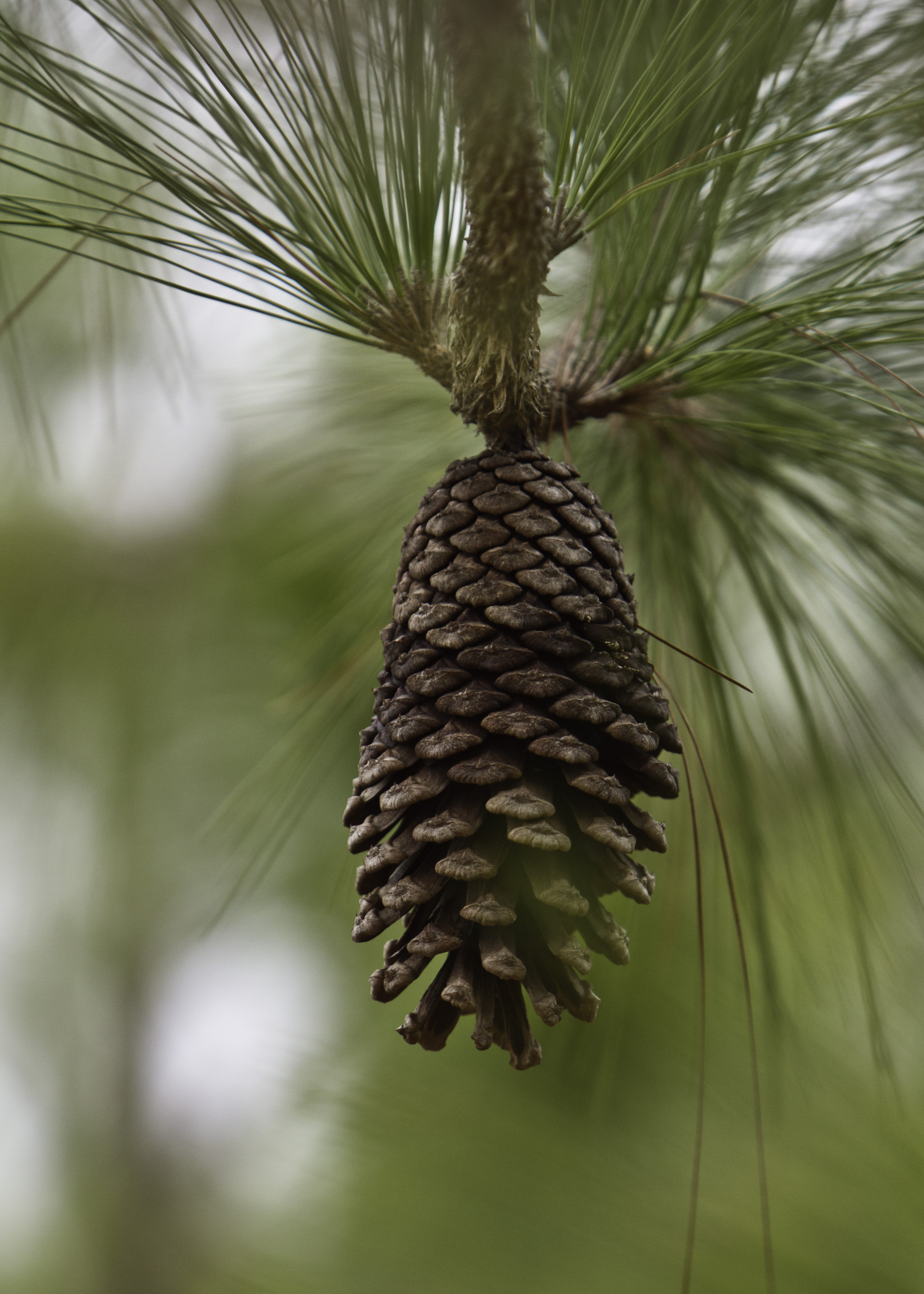
Explore TNC's Virginia Pinelands Program
Conserving centuries-old cypress swamps, VA's rarest bird and iconic longleaf savannnas.
Learn moreVolgenau Virginia Coast Reserve
Eastern Shore of Virginia
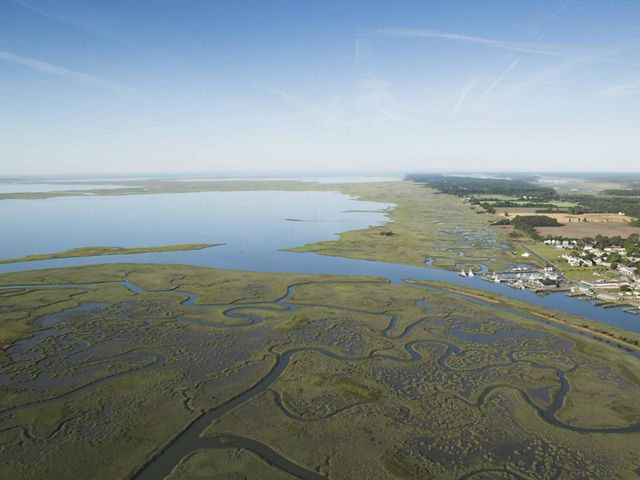
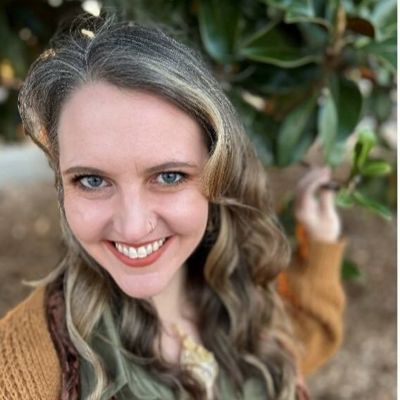
Chelsea Krieg was raised in Chesapeake. She received an MFA from North Carolina State University. Her work may be found or is forthcoming in New South, Gulf Coast, The Southern Poetry Anthology Volume IX: Virginia, Tinderbox Poetry Journal, The Greensboro Review, Poet Lore, and other journals. She lives in Raleigh, NC, and teaches writing at NCSU, where she is also Assistant Director of the MFA Program.
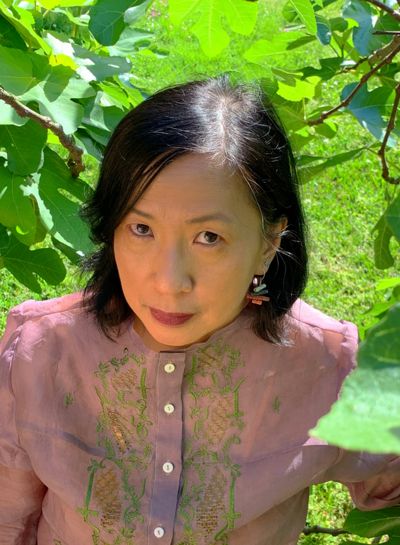
Luisa A. Igloria is originally from Baguio City in the Philippines. She is the author of 14 books of poetry and four chapbooks. In July 2020, then Virginia Governor Ralph Northam appointed her as the 20th Poet Laureate of the Commonwealth of Virginia. She is a Louis I. Jaffe Professor and University Professor of English and Creative Writing at Old Dominion University.
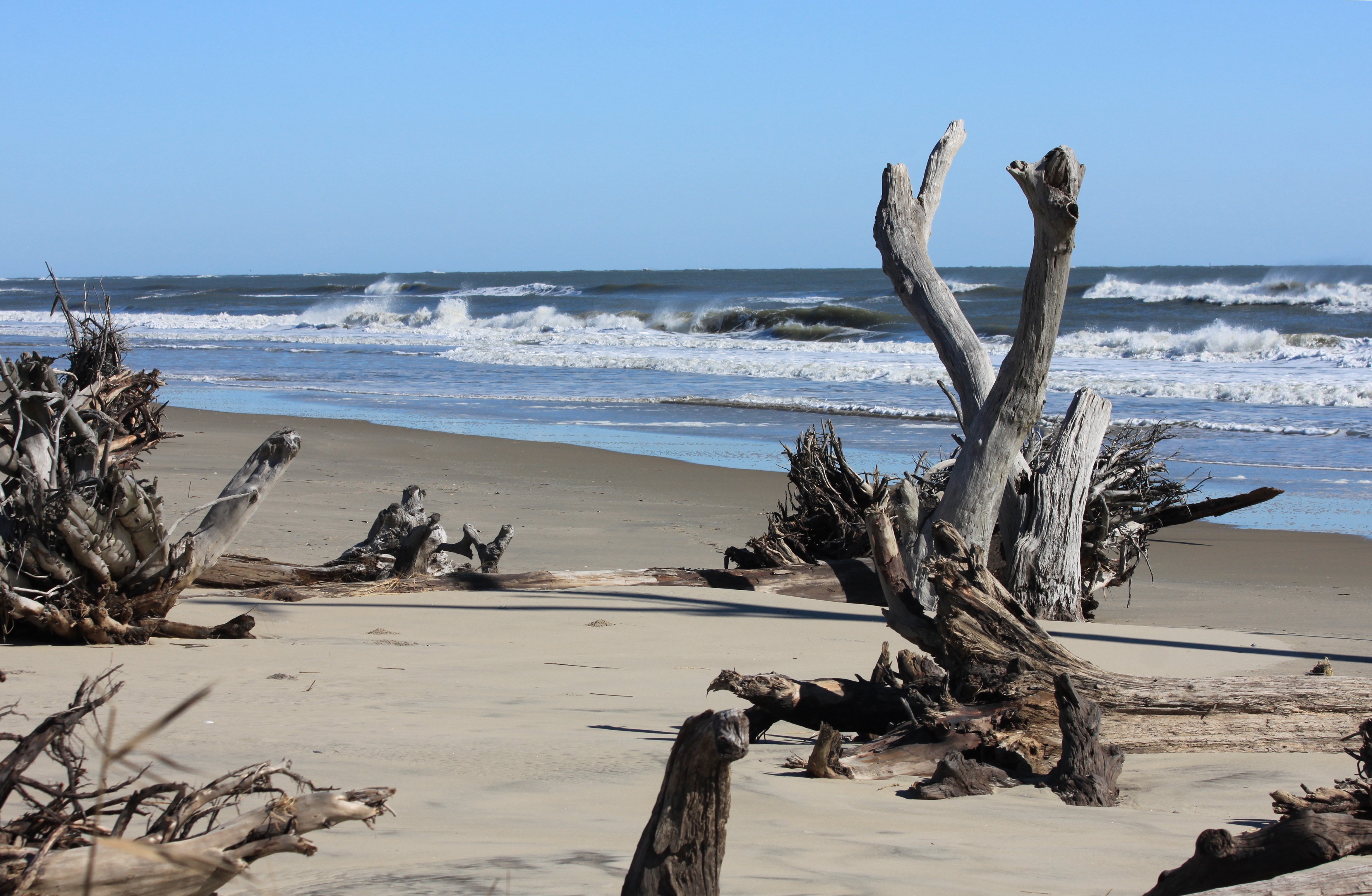
Before I Knew What it Meant
Cape Charles, VA
by Chelsea Krieg
In the first chill of November, cattails waver
where we step as catbirds whine above
and we know that here, the Virginia coastline
is sinking. Ghost forests haunt the marsh
with silver skin and roots that surrender
to a rush of salt and the weight of every
slender body that passes. In the clearing, my mother
teaches me how to mourn: to crush wild fennel
between thumb and pointer, breathe
in its sweet anise. She baptizes each stalk–
sea oat, sumac, groundsel, goldenrod.
Wasps nests cling under a nearby bridge
like a church organ, and our footsteps are soft
as the prayer I whispered as a child–if I die
before I wake, I pray the Lord, my soul
to take–before I knew what it meant.
Overhead, crows heave their dark voices
like a choir and we slip along the banks
to collect their songs. Scientists call the bobwhite,
near-threatened and we search for broods under
briar thickets and call to them by name.
Once, I thought I heard a reply, but it is always
always my mother’s voice echoing back to me.
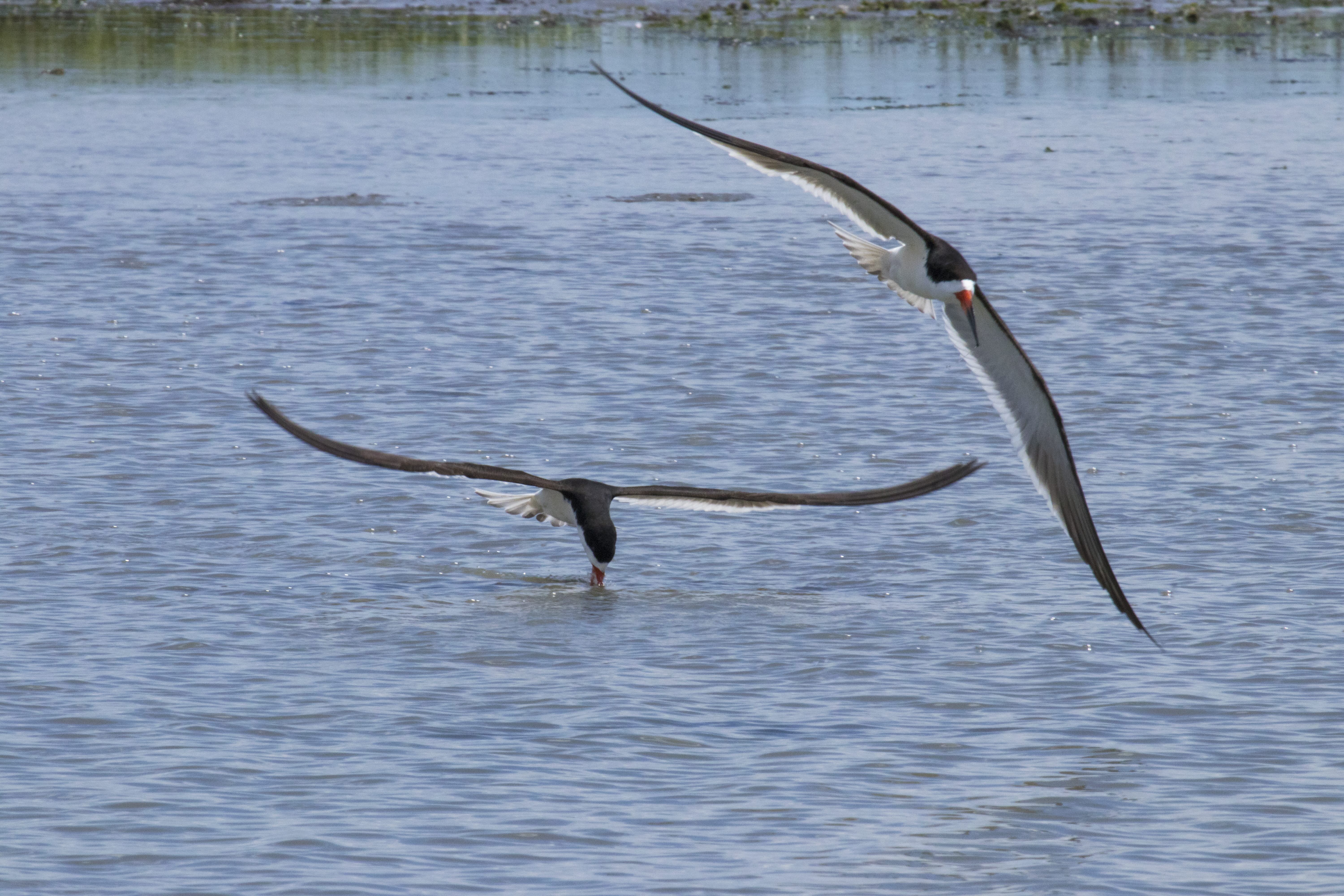
To Be Both
by Chelsea Krieg
Before frost settles onto the cordgrass, the sun-
tipped monarch will alight on the goldenrod near
an abandoned spider web. Before the kestrel lifts
from the snag’s skeleton, the yaupon holly will root
into the sand, its scarlet berries peppering
the beach. Before the marsh wren skitters across
the fallen pine where little nest polypore make
cups for rain to fill, leopard frogs will leap
into puddles along the footpath. Before I know
the names of every tree and birdsong along the saltmarsh,
I will hold my daughter. And I will finally understand
that it is possible to be both the doe standing
in the clearing, and the fawn leaping
through the meadow, scared, and on her own.
Quote: Chelsea Krieg
My personal goals and my projects are to intertwine the human world with the natural world and to highlight the ways in which we're similar and the ways in which we're different, the ways in which we are perhaps claiming land in problematic ways.

Insuring the Land
by Luisa A. Igloria
All this: what one could still gesture at
with a sweep of an arm—coppery
stretches of sand flats, gel-like
pools of water asterisked by slender
birds, hems of hills ringed
with stands of stalwart green.
Thickets of greenbriar, cedar,
and pine; saltmarsh cordgrass
across the estuary. We want
to gather them in as if to hold,
as if we could—each ruffled frond
and call in the softer hours,
each speckled staff of sea oxeye
and goldenrod. Insurance is the word
we use for the fear of risk
underlining every desire,
knowing as we do
of war’s broad mantle, storm
surges that breach the reefs
and barriers, forcing their way into every
box of keepsakes in the basement,
roofs that cave in from the unrelenting
sorrows of rain. We’re always paying
to underwrite the cost of coming
tragedies, the cost of restoration
of these habitats: paying with coin,
with sandcastled futures of human
and nonhuman beings not yet even born.
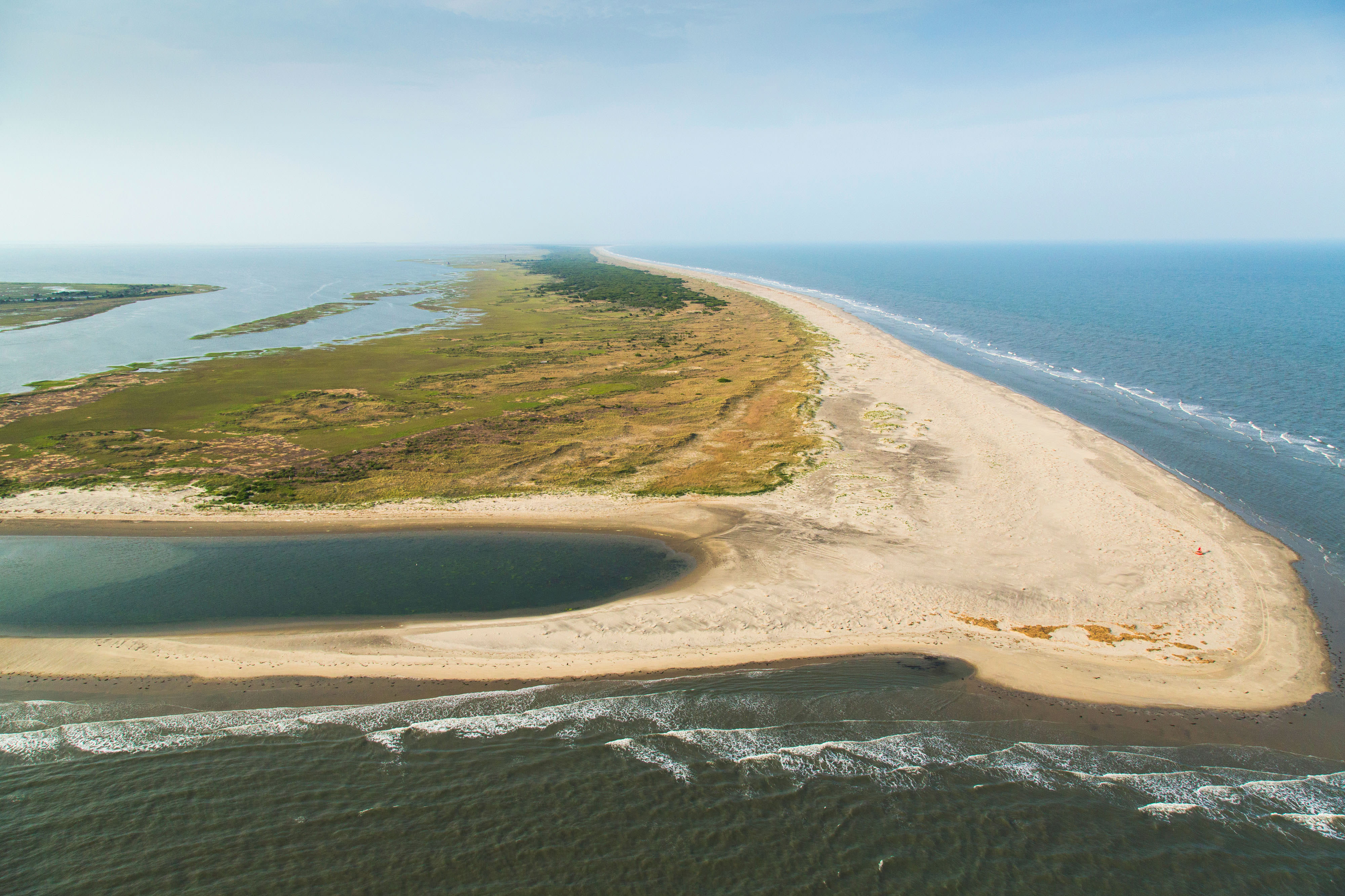
Hog Island
by Luisa A. Igloria
The sun dips beneath a horizon of barrier
islands, marshes filled with traces
of the winged and wild-footed.
Skimmers in spring, migrants
wheeling toward the salt of other seasons.
On one side, the water; on the other,
the land—acres that yielded corn, tobacco,
barley, cotton. And where
are the quail that loved
fields of castor bean, that thrashed
in the wake of rifle fire? This
time of year, everything in the landscape tints
to the color of bronze and rust, registry pages
inked in sepia with names and weights;
the worth of indentured bodies. Palimpsest
means the canvas we see
floats on a geology of other layers—
sedimenting until the sea works loose
what it petrifies in salts and lye, what it
preserves for an afterhistory with no guarantee.
Quote: Luisa A. Igloria
There are and continue to be thriving Indigenous communities and lifeways, so I've always been very conscious about how place is not just a marker in a geographical sense, but how it really signifies deep connections that are meaningful in many different ways to the people who feel connected.
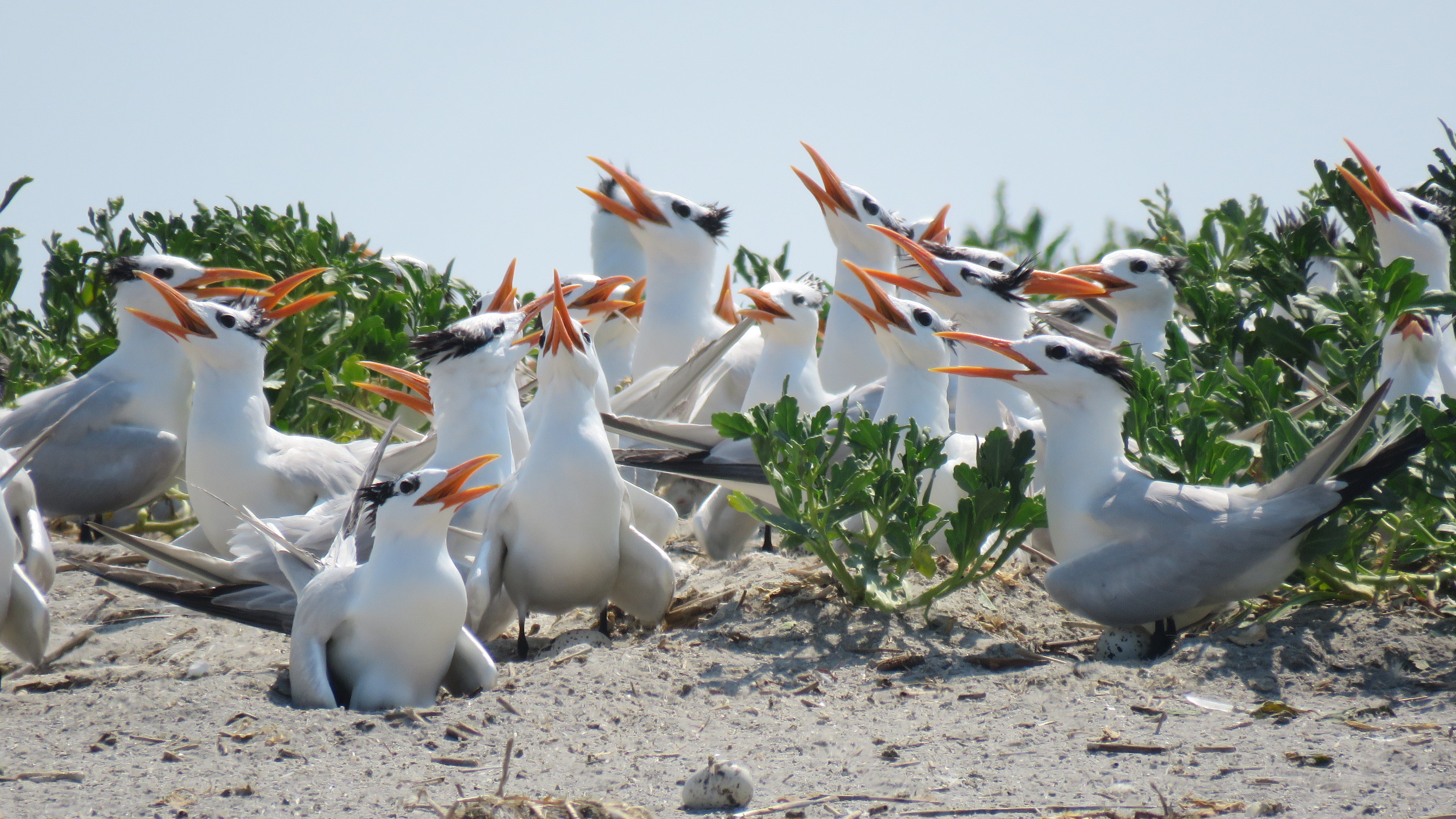
Machipongo
by Luisa A. Igloria
Our guides ease the boat through narrow
channels until we get to open water,
point out observation towers
in the distance. Closer by,
stretches of marsh-meadow
where hermit crabs flip houses
all day. Flocks of dark-headed
laughing gulls with lightly rouged bills—
their numbers now severely diminished.
An eagle perches on a post then takes
to the sky. We learn about the wrecked
sailing vessel carrying hogs in pens;
how surviving animals swam to shore,
giving the island this name. I prefer
Machipongo, Algonquin name which means
fine dust and flies, or the sands that constantly
shift; and clouds of mosquitoes rising
from the reeds. Never stopping,
undulant histories overlap in piles
of fog as fronds of eel grass work
to quietly leach carbon from the water,
weave shelter for a world of creatures.
Explore TNC's Volgenau Virginia Coast Reserve
Conserving the longest expanse of coastal wilderness remaining on the East Coast.
Learn moreCumberland Forest Project
Clinch Valley, Southwest Virginia
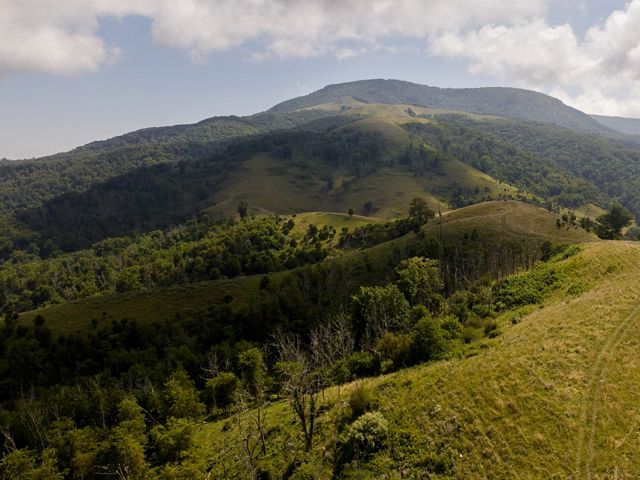

Tramere Monroe is an emerging poet, writer, and lover of words from Roanoke. He has performed his poetry at venues such as Live Arts in Charlottesville and Soul Sessions in Roanoke. In his spare time, he enjoys jogging in nature, watering plants, and chilling on the beach. He believes in the power of recycling, poems, and prayer. He is currently working on publishing his first book.

Clinch Cumberland
by Tramere Monroe
I am a Clinch river running
A forever water dashing
As Aqua white pouring over
Against the backbones of my cliffs
Those whose hands bury into me
Will lift them as opened palms drenched
Of surviving clams still alive
Proof that life is still worth living
You can hear my fluidity
Gush between the teeth of rocks
Falling over the green moss
Of Cumberland stones
Here the boughs of trees
Bow into my cold brook
I am a temple of countless trees
Loved on by the grace of human hands
I am a forest
For the living bird
Perched to a dangling branch
Staring to an endless sky
I am a mountain
Of whispering white
Water falling, crashing
Into a rippling wave
You can see the puffy white clouds
On the mirror of my waters
Move against the stillness
Of my river
And flowers, they bob their heads
Wiggling in the fall wind
Bouncing over the tall grass
Stretching their long necks afar
My flowing run like blood
Through the tunnels of veins
Passing through Powell
And through Holston’s path
My flowing is like blood
Where mussels filter me
Protecting me from harm
Clinging to the unclean
If I am alive
Then those who dwell in me live
Not as the undead
Floating as pollution does
Tell me,
What is the heartbeat of a river
Perhaps it is the bass flinging itself
In mid-air and plunging back into me
Quote: Tramere Monroe
It is the artist's responsibility to make people aware of things that they otherwise may not be aware of. And poetry has a really special, unique way of doing that.
Explore TNC's Clinch Valley Program
Conserving the Clinch River and supporting nature-based opportunities in Southwest VA.
Learn moreBuck Mountain Creek Conservation Easement
Albemarle County, Central Virginia
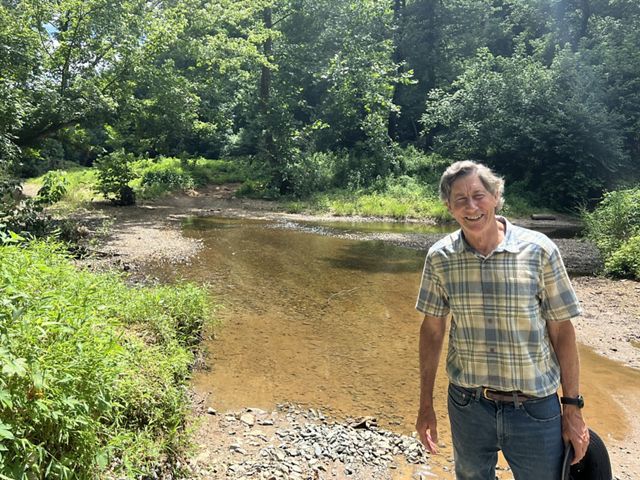

Jonathan Z. Cannon writes poetry and nonfiction and is the author of Environment in the Balance: The Green Movement and the Supreme Court. He retired in 2021 from the UVA Law School, where he served as the Blaine T. Phillips Distinguished Professor of Environmental Law and the inaugural director of the Program in Law, Communities and the Environment. A former general counsel for the EPA, Cannon wrote the legal memo that set the first U.S. Supreme Court decision on climate change into motion. His family’s and neighbors’ lands in Earlysville are under conservation easements with TNC.
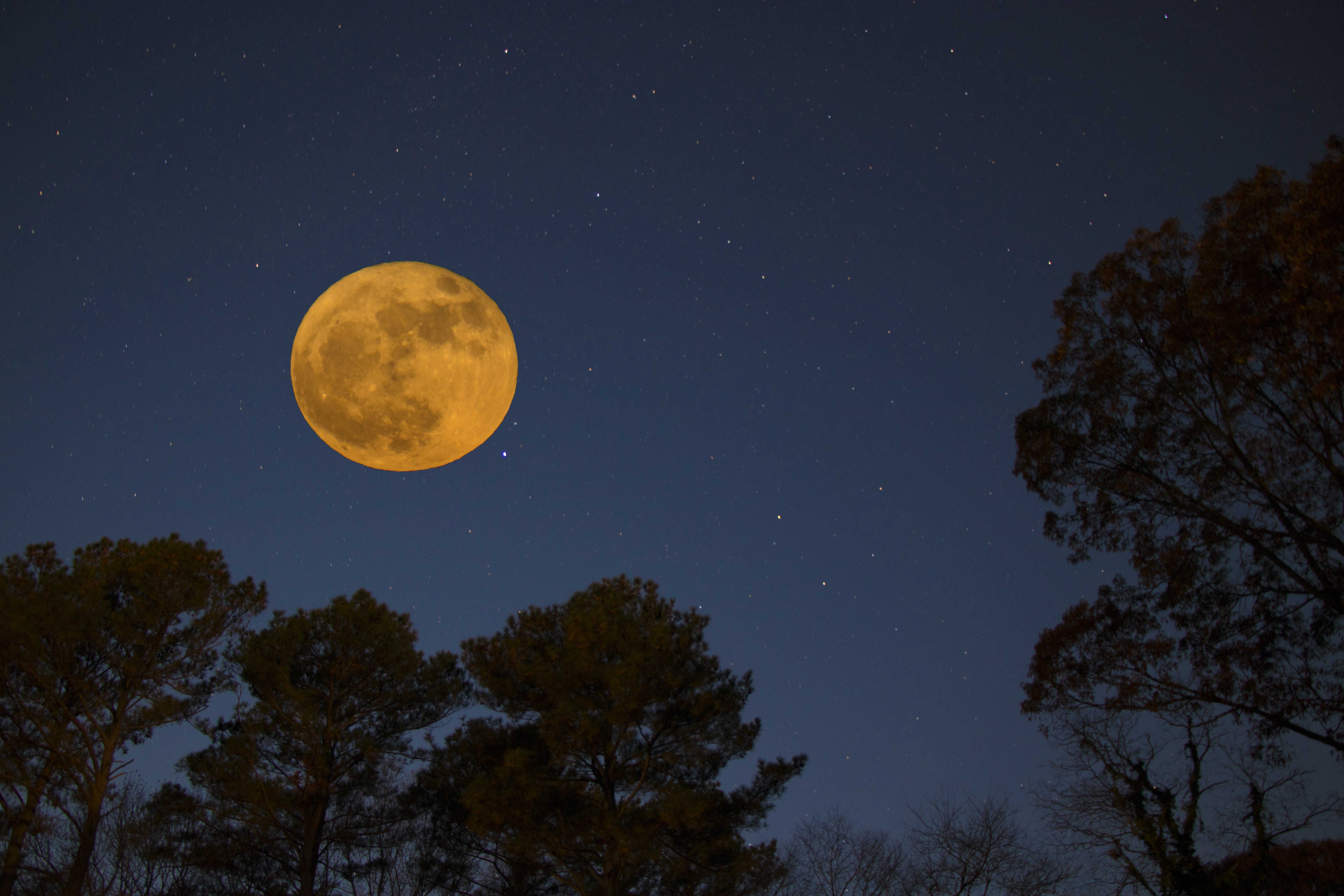
On Land under Perpetual Conservation Easements
Buck Mountain Creek, VA
by Jonathan Cannon
Cold comfort, the Frost Moon
exposed tendon, broken bone.
The hide bunched at the fetlock
like a slipped sock
where the deer caught the wire
as it leapt, flipped, hung spraddled there
until I cut it down unceremoniously,
unsure whether it would live or die.
A ghostly rag snagged in the last flood,
a blackened host of leaves in the rood
of a sycamore: I look for assurances
that death here isn’t in its final senses.
The land’s intact, these tracts redeeded to
their primal natures – so
always the creek, its lifeblood everywhere.
Somewhere the deer.
Bone shine, shadow limbs, midnight blue sky,
from which to conjure perpetuity.
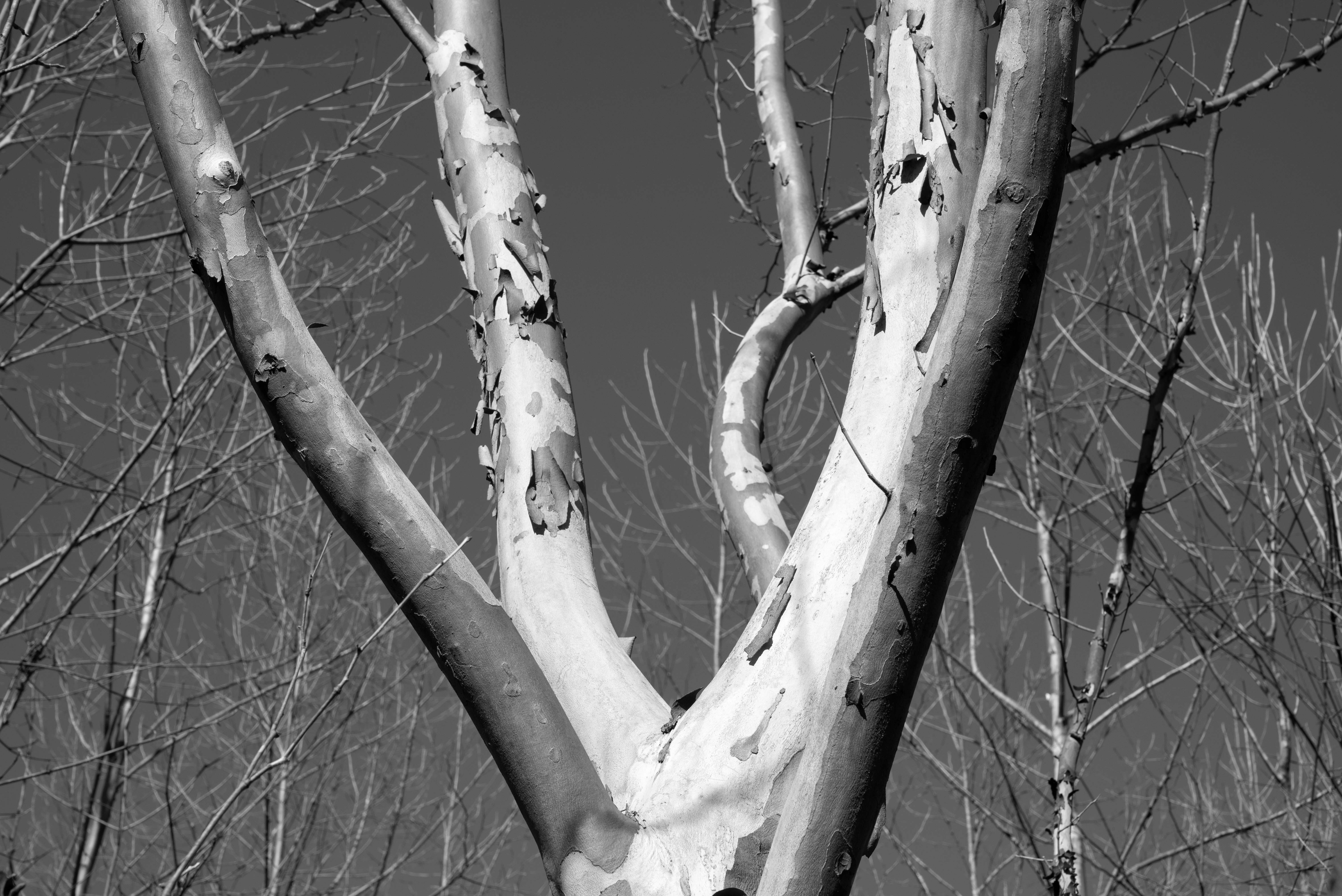
Joyeux Noel
by Jonathan Cannon
I’m heavy with you all day,
your head canted against the ribs
where the heart is, sleeping.
The mountains, the low hills
leading to mountains, wait for revelation,
a going down or in
I’m powerless now to execute.
Advent: a coming to.
Of what, to whom?
On the sand lens along the river
where water-birthed, you walked,
left talismanic prints,
the satellite image showed nada:
a sterile nail paring lodged
in a kink of the purple-tinctured trace.
I want
what the spy-in-the-sky can’t see
but have trouble getting.
When without fanfare
a snowy egret rises and beats downstream
on its own adventure.
Fluent modality.
This adventitious time,
the crossed blessing of slow outsweeping wings.
Quote: Jon Cannon
You can't separate human history from the land. It's what shapes the land, and the land shapes the history. It's all relevant.
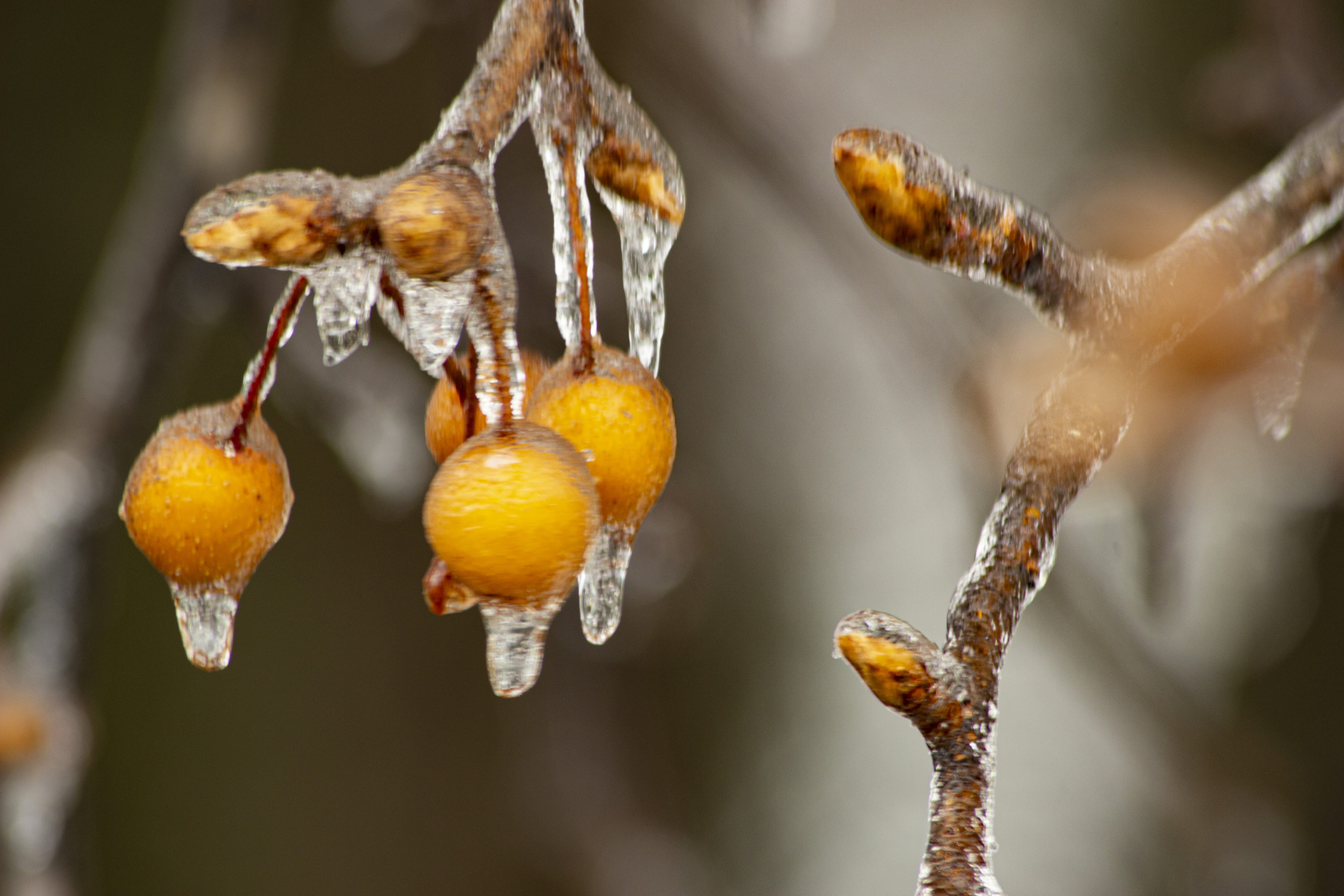
Invasive
by Jonathan Cannon
On what was pasture with an apple tree
before we graded the embankment for the road
and topped it with a guard rail
to keep gravel surfers from taking the plunge,
it’s hard getting much to grow.
Scrappy cedars and pines will fill the opening,
but this spring Bradford Pears march through
unbidden, their breeze-stirred five-petal bundles
showier than the apple, promising
to take over if you let them.
I notch the base, make a straight cut at the back,
and watch them fall. Blossom clouds
smear arcs on their way down.
Their light dispersed, they won’t stop shining
like rainbows, full spectrum – brio and shyness.
How did I get to be the enemy?
This butchering of bones, mine
or yours felt as my own.
Your angles, softnesses and thorns.
One pierces a vein on the back of my right hand.
Random stick, love bite, defensive jab?
A welcome cleansing. I suck the blood.
Weeks later the wood’s still green,
the twigs supple, leaf-buds aroused.
Too late to say, please,
have it all – penurious slope, upended earth,
unflowered sky – just have me too.
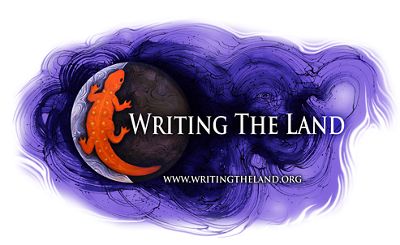
We Can’t Save Nature Without You
Sign up to receive monthly conservation news and updates from Virginia. Get a preview of Virginia's Nature News email
